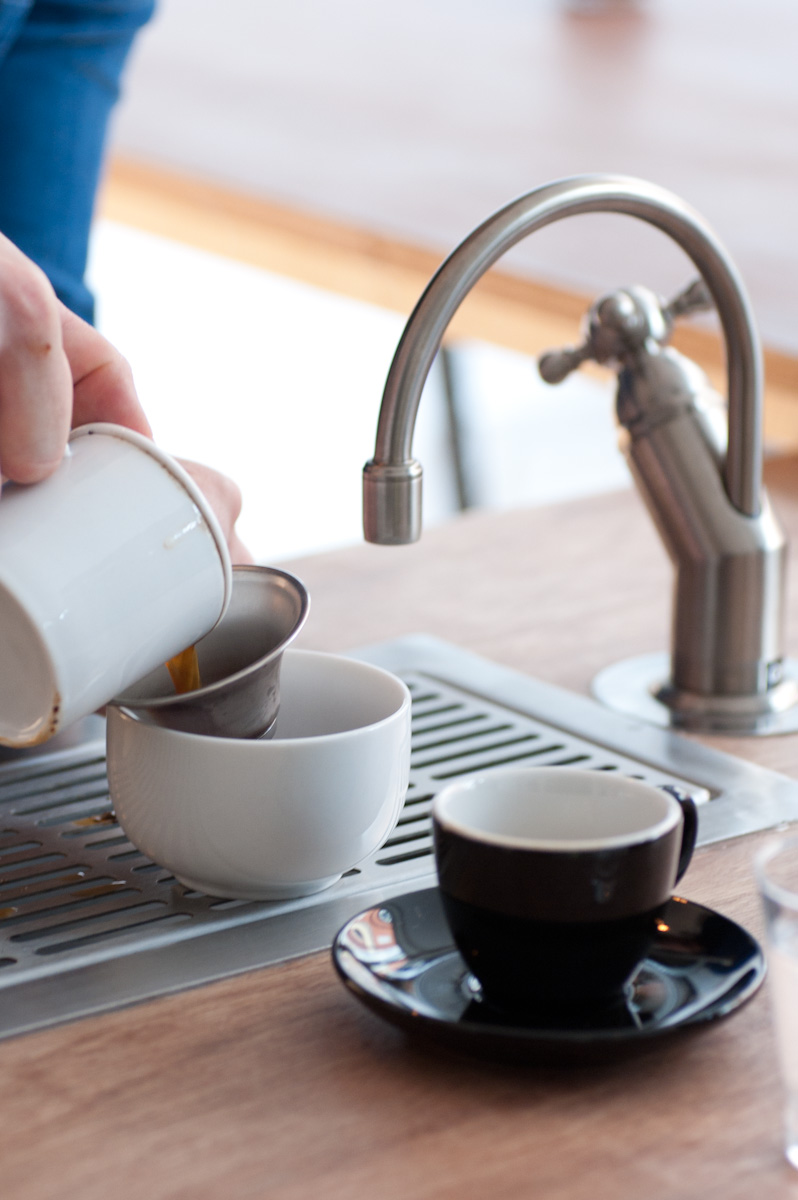DunneFrankowski
Rob Dunne and Victor Frankowski are on a mission to redefine the way we approach the humble coffee bean.

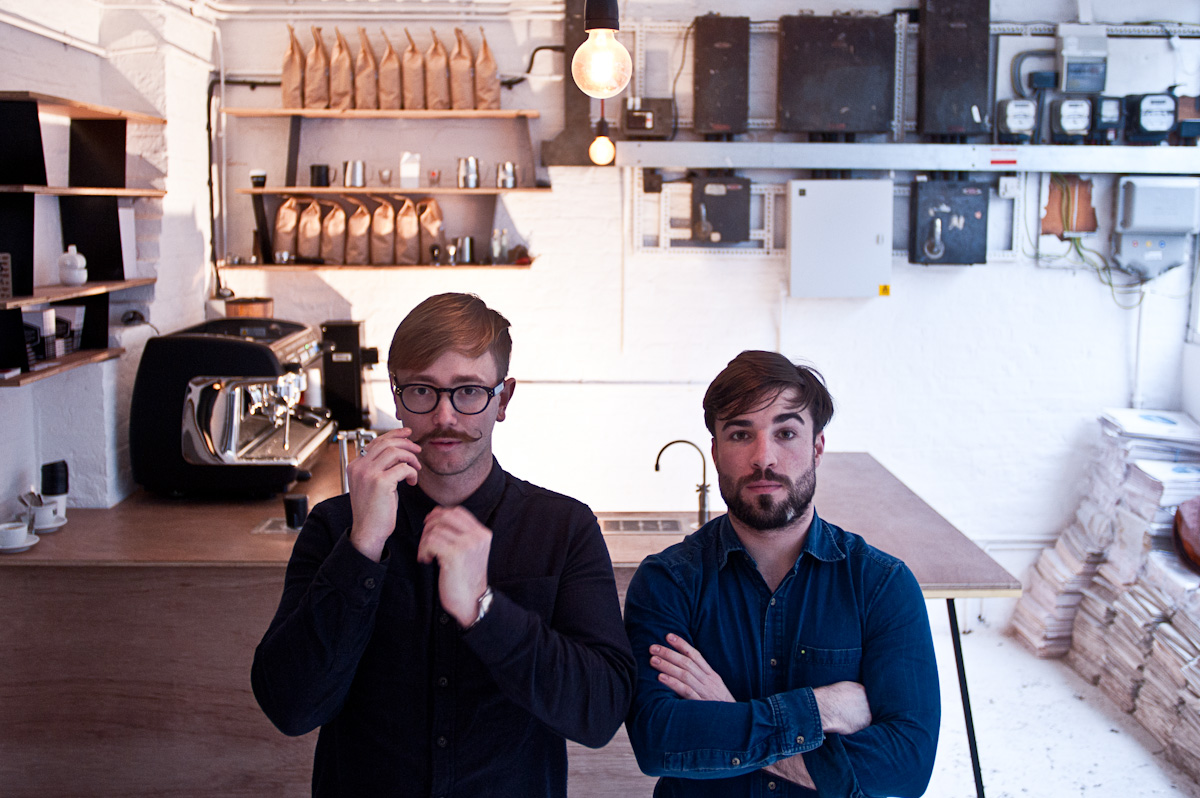
To say that Rob Dunne and Victor Frankowski ‘like coffee’ is a bit like suggesting that whales enjoy the odd drop of H2O. Such is their passion (Rob and Victor, that is, not the whales) that, under the combined moniker of DunneFrankowski, the entrepreneurial duo are on a mission to redefine the way we approach and appreciate the humble coffee bean. Clearly this is about a lot more than just delivering another perfectly-poured flat white. “DunneFrankowski,” as they explain it, “is a creative coffee company that utilises café culture to bring subgenres of society together.” Born in Poland but raised in Australia (for many the spiritual home of the modern coffee scene) Victor met his business partner and fellow coffee-enthusiast a little over a year ago in another leading London destination café. Skip to the present, and Protein by DunneFrankowski is their first permanent venture, tucked away behind the main thoroughfares of Shoreditch within Protein’s 18 Hewett Street gallery.
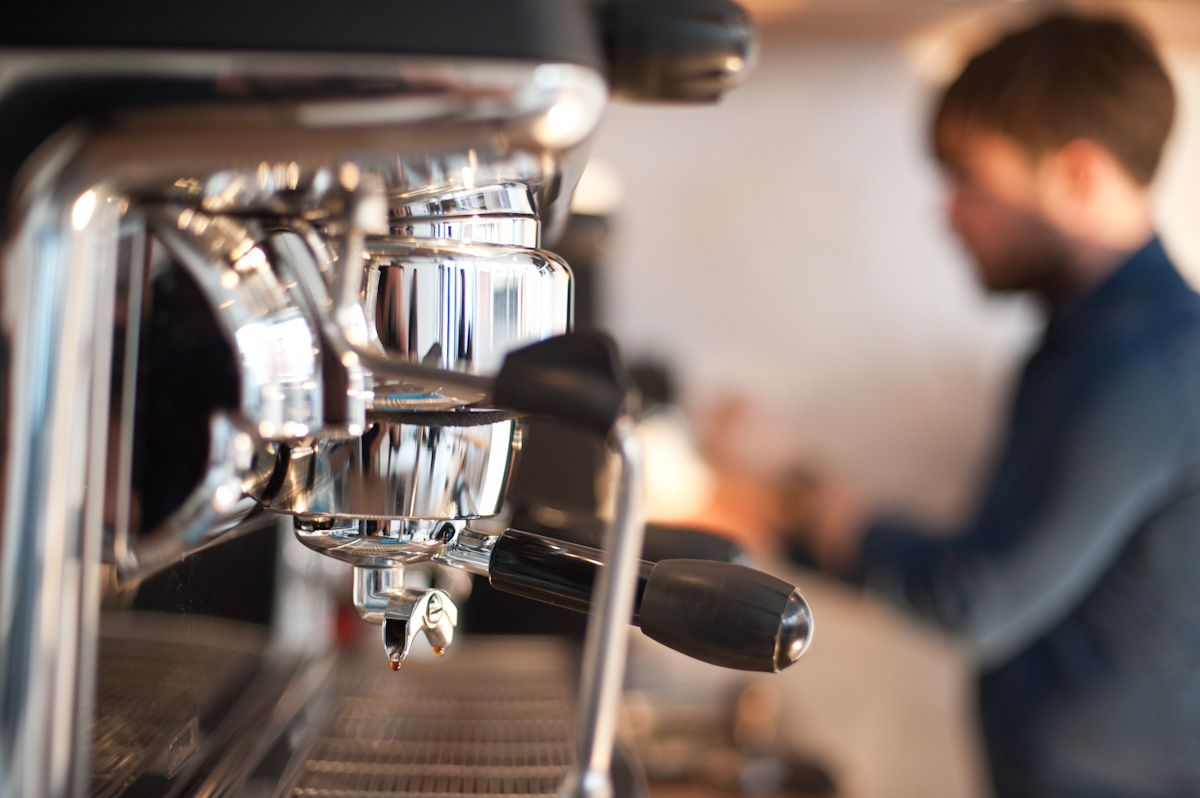
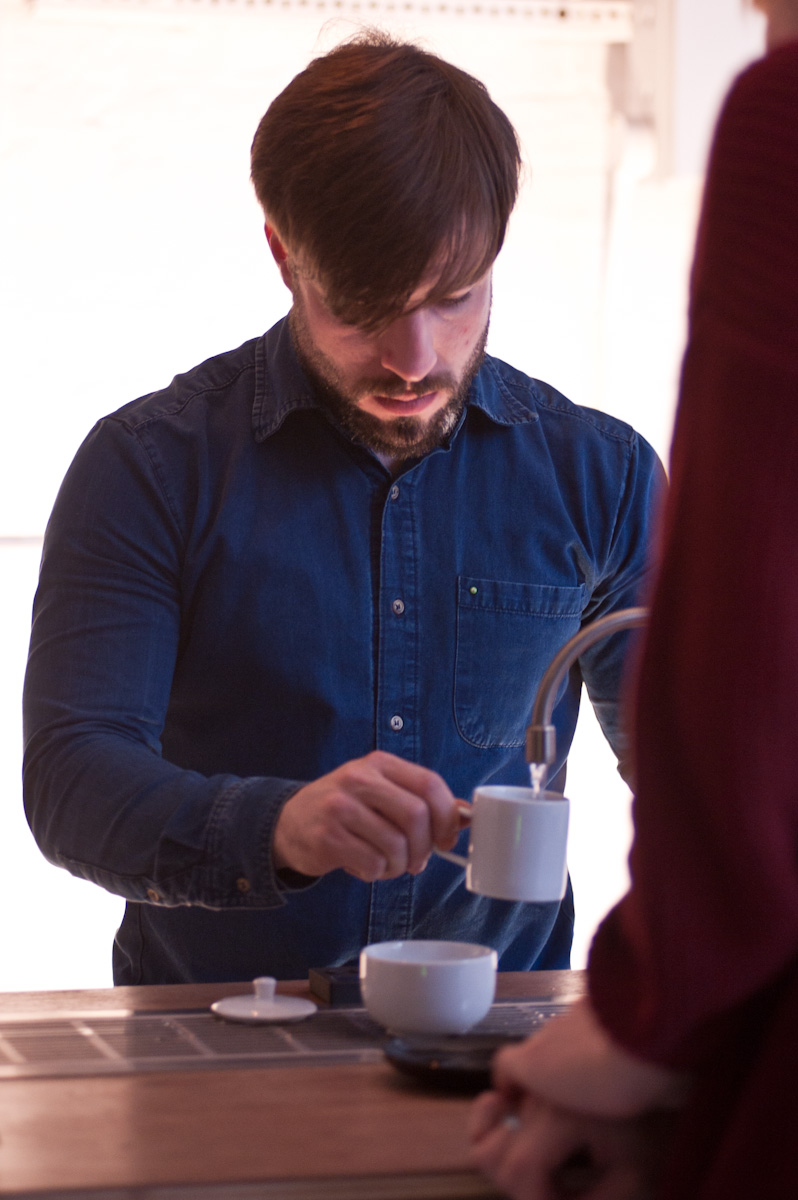
Serving a pared down take on speciality coffee culture, the boys’ inaugural bar is the pulpit from which they preach their caffeinated gospel, experimenting with ever-changing guest blends and a variety of unique serves, and focusing on developing the relationship between the barista and consumer. “Your customers are people who drink coffee and love coffee and want to learn about coffee,” says Rob. “But they’re not always professionals. If we tailor our service to the higher end in a very knowledge-driven approach, that can be quite intimidating. So the idea is to strip it right back to the fact that you can be the best baristas in the world or someone who has never drunk coffee in their life, and we will try to bring you on that same journey.” “What makes DunneFrankowksi different,” adds Victor, “is that we try to look at the things we like in coffee – and that’s predominantly the cultural side. What we’re trying to do initially is educate people by being in spaces. By just being in this coffee bar, for example, customers can get a subconscious education about good service and quality products.”
Coffee is a fruit. There are over 800 flavour notes in coffee, so we have to try and figure out what we get from them.
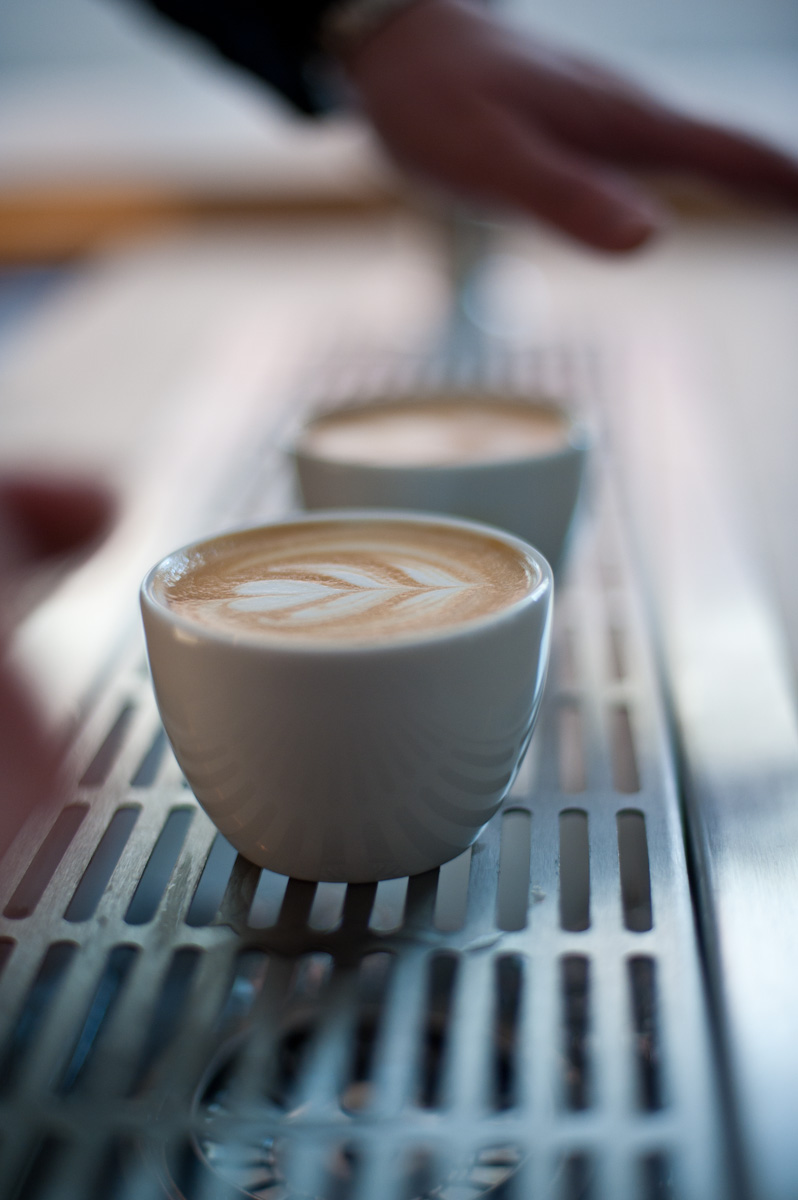
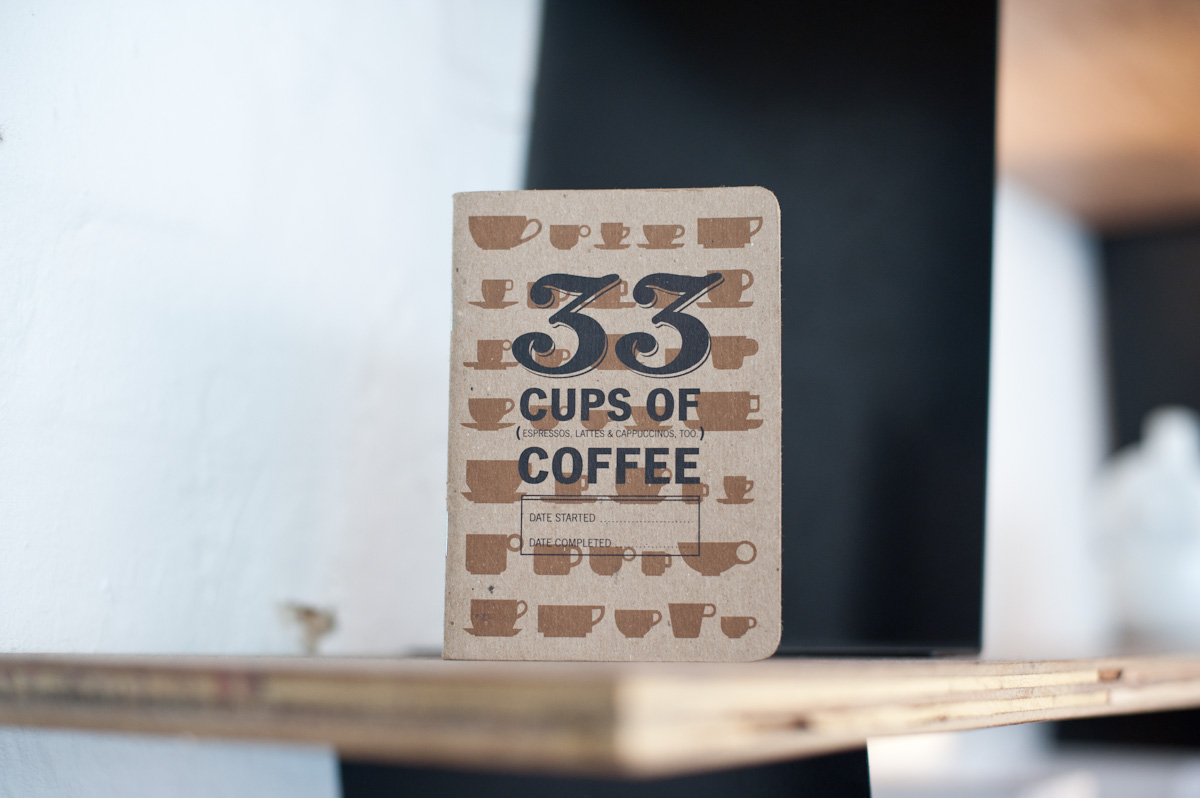
More than a transient trend, Rob and Victor align the success of speciality coffee over the last decade to the explosion of boutique. The speciality market has now entrenched itself so firmly, they explain, that the major continents involved have even developed their own identities within the wider international coffee culture. Europe has begun to catch up with its American and Antipodean cousins, with London specifically defining itself by an accelerated state of expansion (“in the last few years we’ve gone from having maybe seven independent coffee shops to now having over 40,” Vic says) along with a tangible camaraderie. “Instead of coffee shops going up against each other,” Victor explains, “here it’s more about being open as a community. So, if you go into a café and ask a barista where else you should go, they’ll generally be quite happy to recommend that you try this place or that place. And all because they just want you to drink good coffee.” Even within such a likeminded community, Messrs Dunne and Frankowski are still managing to stand out from many of their peers – not only through their approach to consumer engagement and education, but also design. At first glance, the Protein by DunneFrankowski coffee shop is a demure, stripped back space, all white-washed brick and open-plan exposed architecture. Simple enough. But at its heart stands a deceptively hi-tech bespoke bar and service space, embedded within a skeleton of varnished ply and powder-coated steel and complete with all manner of barista toys – from a proprietary embedded sink system and Protein’s live coffee tracking software to a Cimbali pressure profiling machine which apparently empowers baristas “to extract different flavours at a particular time and open up the world of espresso to a whole new level.” Even more than the gadgets and technology, it’s the bar’s underlying design concept that is perhaps most intriguing. Conceived to be ergonomic, economic and as transparent as possible, firstly it is set significantly lower than the standard coffee and cocktail bar “so that the height is more inviting for customers,” as Rob puts it. “The word ‘bar’ originally comes from ‘barrier.’ It is designed to keep customers away. But not here.”
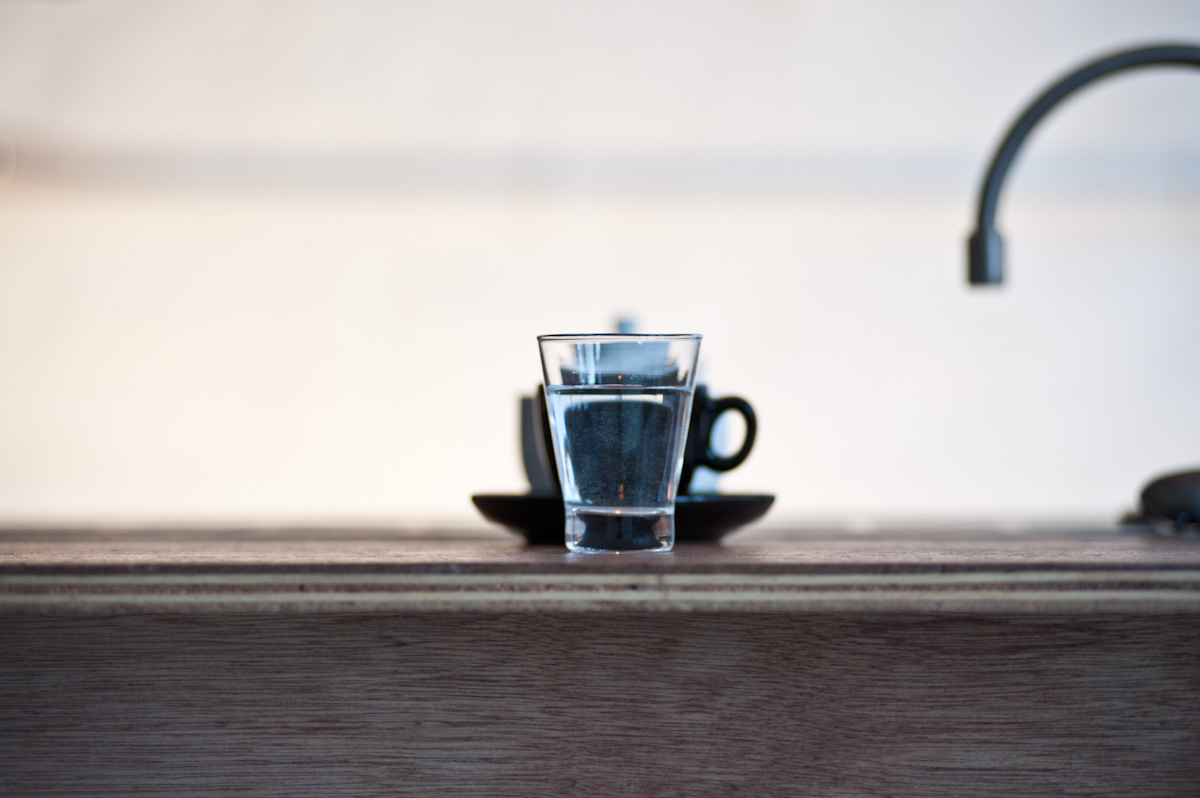
Then there’s the way the pair are tackling at a more subconscious level the apparent public perception of espresso as somehow superior to filter coffee. Central to this is the creation of a secondary modular brew bar that’s raised a few inches over the main stretch of bar. “The idea is that here filter coffee is literally elevated above espresso. But just slightly,” says Rob. “It also brings customers closer to us to converse over the coffee, instead of just sitting down in some hidden part of the room.” As a company, the duo are busy getting involved in everything from product consultancy through to events, so expect to see much more of them over the next 12 months. Even in this age of austerity, it seems that the coffee business is booming. “Perhaps,” Vic says, “It’s because, even in times of recession when people might watch their money on food or going out, coffee is something quite comforting and quite accessible.” As part of their event plans, Dunne Frankowski are working with Protein on a series of forthcoming Academies. “ People just see coffee as coffee. But we want to show them that there’s more to it than just a single flavour,” Rob explains. “Coffee is a fruit. There are over 800 flavour notes in coffee, so we have to try and figure out what we get from them. The idea is then to deconstruct that and present it to the customer in the simplest fashion so that they can enjoy it even more. “For me, coffee is a slightly obsessive thing. But with it you can start with a raw product, and within a very tight space of time create something to a finished level. And you can appreciate it instantly. Every cup you make should then be better than the last. You’re always striving to outdo the one beforehand…” And surely that’s the very epitome of craftsmanship.
